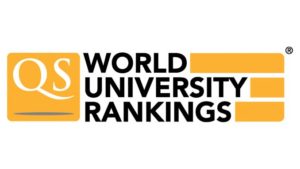 In the current QS University Ranking, TU Dresden is among the top 50 in the world for the first time in the field of materials science
In the current QS University Ranking, TU Dresden is among the top 50 in the world for the first time in the field of materials science
Dresden, 27th February 2019: In the “QS World University Ranking by Subject 2019” published today, TU Dresden has made it into the top 50 of the listed universities in the Materials Science category.
Materials research at TU Dresden is interdisciplinary, combining subjects from the natural sciences and engineering. Physics, chemistry, biology and mathematics are combined with expertise from materials science, mechanical engineering, electrical engineering and computer science. In addition to materials science and materials engineering, the materials science course also covers nanotechnology. A total of more than 250 students are enrolled in the materials science Diplom and bachelor’s programmes.
“I first studied physics. An internship at a Fraunhofer Institute in Dresden gave me my first introduction to materials science. I enjoyed it so much that I wanted to study it right away. Dresden offers an exceptionally good study environment for materials scientists. Through the many joint professorships by TU Dresden and various non-university research institutions, students are able to gain a lot of practical experience. During my studies, I was always able to find somewhere to immediately begin experimental work on the topics that interested me, sometimes even in the form of a student job,” says Sabine Apelt, a graduate materials scientist. The 32-year-old from Dresden is currently doing her doctorate at the Institute of Materials Science at TU Dresden on the topic of ice-repellent and pyroelectric coatings. In the future, she plans to increase the efficiency of wind turbines or reduce the energy consumption of supermarkets.
“The strong network between the university and research institutions in the city has elevated Dresden’s materials research to this high level worldwide. This enables our students to be involved in top-class research projects at an early stage and gives them direct access to subject-related internships and student jobs. Theory is quickly turned into practice,” says Prof. Gianaurelio Cuniberti, Chair of Materials Science and Nanotechnology at TU Dresden. “New and innovative materials are one of the most important drivers of technology and are indispensable for solving current challenges in the fields of mobility, energy supply, urbanisation and medicine. Researchers in Dresden are superbly equipped to meet these challenges and thus establish themselves in the long term among the world’s best universities in the field of materials research”.
About the Institute of Materials Science at TU Dresden
The Institute of Materials Science (IfWW) at TU Dresden consists of four professors appointed to the institute and one extraordinary professor with a total of over 150 staff members. In addition, there are six joint professorships with non-university research institutions (Leibniz and Fraunhofer Institutes) and four honorary professorships. The IfWW’s research results are used in industrial applications, for example in the aerospace and automotive industry, in energy and electrical engineering, and in rail vehicle construction and medical technology.
The success of materials science in Dresden is due in part to the close cooperation between TU Dresden and non-university research institutions within the framework of the DRESDEN-concept research alliance. This science network is supplemented by research alliances on modern, cross-sectional topics. Accordingly, the Dresden Center for Computational Material Science (DCMS, headed by Prof. G. Cuniberti) is pooling expertise in the field of computer-aided materials science, and the Additive Manufacturing Center Dresden (AMCD, headed by Prof. C. Leyens) is developing innovative material and product solutions in additive manufacturing in cooperation with the Fraunhofer Institute for Material and Beam Technology IWS.
To date, the “QS World University Ranking by Subject 2019” is the largest evaluation of more than 1,200 universities from 78 countries. The methodology comprises the following indicators: academic reputation, employer reputation, citation per scientific paper and H-index. Thus, the results reflect TU Dresden’s overall performance in the field of materials science.



